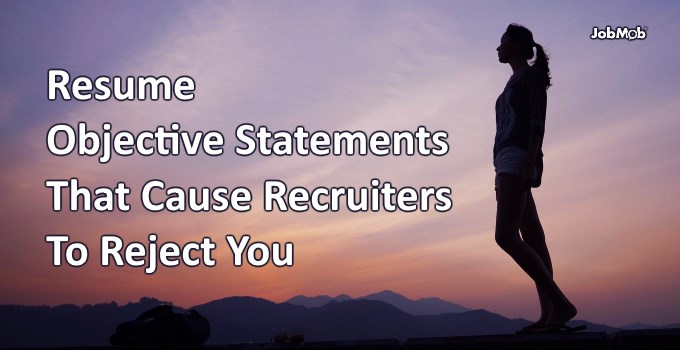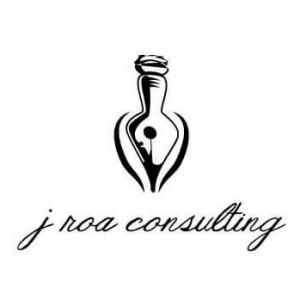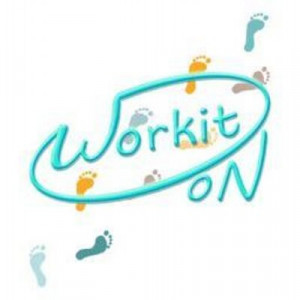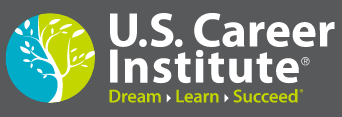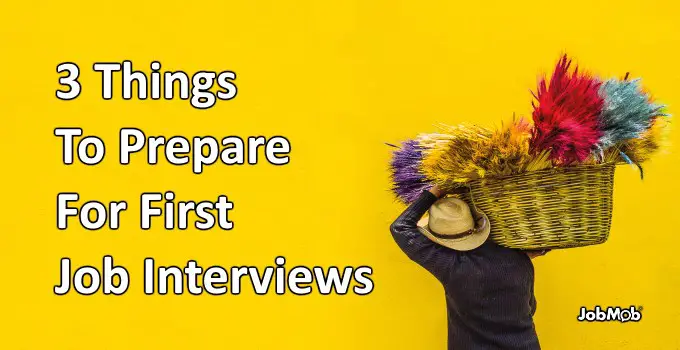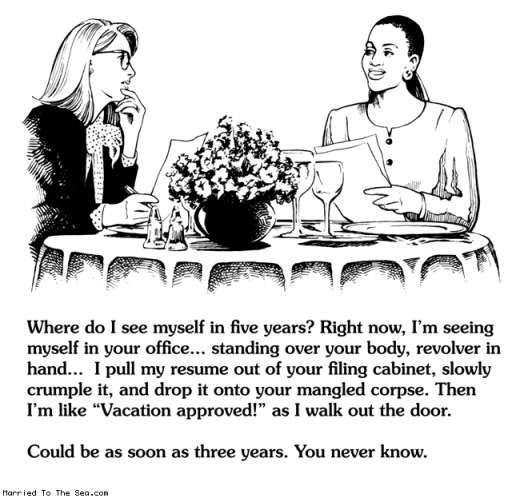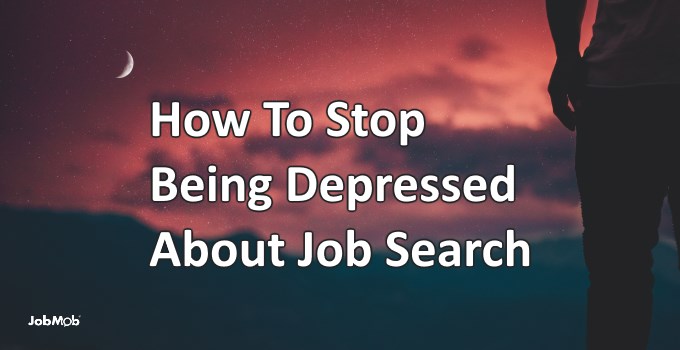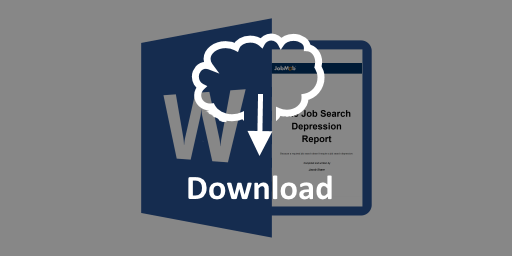How to know if your resume has an objective statement that helps or hurts.
This is a guest post by Paula R. Stern.
Does your resume have an Objective Statement that starts with something like, “A responsible position allowing me to fully utilize my professional skills and which provides me with an opportunity for professional advancement”?
If it does, consider that you've just asked a potential employer to read 20+ words that say absolutely nothing and risked having that person close your resume rather than learn what you can really do for them. My personal belief is that the fastest way to lose a job before they even read your resume, is to begin it with something like that.
When going through the job-seeking process, it is very important to understand the stages and the roles of the documents that support each stage.
Note: There is a poll embedded within this post, please visit the site to participate in this post's poll.Free bonus: The One Resume Resource You’ll Ever Need is a handy reference to make your resume get you more job interviews. Download it free now
Cover letters that get your resume read
Intern cover letter " I want to be in radio" – Resume Objective – "To obtain a job in (Non radio field) #Fail
— David Brody (@David_Brody) November 7, 2017
In today’s job hunting environment, most jobs involve emailing your resume to someone.
Too many job seekers fail to realize that the job of the cover letter is to get the recipient to open the attached resume. That’s all. No one gets a job because of a cover letter, but if the recipient opens the resume, the cover letter worked brilliantly.
I receive dozens of emails from people looking for work, maybe even hundreds over the period of a year. If I receive a blank email, I am as likely to delete the email as I am to open the resume. Perhaps even more so. My feeling is best summed up simply be explaining that if you can’t be bothered to write me a brief note, why should I feel obligated to open the resume?
Resumes that open the door for you
Like the cover letter, the role of the resume is not to get you a job. It’s to get you an interview. If you are called and asked to come to a company, your resume worked.
From there, the process goes on, but what is in the resume is critical – every line, every bullet, every section.
- Your name and address should be placed at the top of the page or file, not on the sides, not on the bottom.
- The name of the file should include your name; not “resume2011.doc.” I might like what I see, but if I save a file that uses that type of naming, I’ll probably never find it again, never open it, never call you for that important interview. (Here are more samples of resume filenames that recruiters won't respond to.)
Resume Objectives that… attract or repulse?
I need to add an objective statement to my resume but I don’t even know where to start
— 5Ks & 3 Days (@bridlesnbits) November 15, 2017
The next big question I have often been asked to discuss, is what to put in the Objective portion at the top of the resume.
Understand that a manager will glance quickly at a resume and decide in seconds whether to bother reading further. In a sense, the manager is looking more for reasons not to continue reading, rather than trying to gain a true assessment of how you can fit into their company.
Is a resume Objective needed?
Does it add or detract from the resume?
The answer, I believe, is “it depends.”
3 rules to decide if you need an Objective Statement in your resume
Here are a few rules for deciding whether to include it or not.
1) Who will see your resume?
If you apply directly to the person who has advertised the job and is responsible for hiring the ideal candidate, the resume Objective Statement may well be redundant. Even more, it may be distracting.
On the other hand, if you are sending your resume to the Human Resources department or to a general email address within a company, the Objective Statement can be helpful in directing your resume to the proper person within the company.
2) What do you want to accomplish?
Resume objective: Seeking a position where I don't regularly feel like the kid from the "David After The Dentist" video (sitting up and screaming part, specifically)
— Ya-Queen Phoenix (@CherylKennedeh) November 18, 2017
If you are applying for a specific job and your resume clearly reflects that direction, the Objective Statement may not be necessary. After all, it is obvious you are a dentist, a technical writer, a translator, etc.
Nothing is gained by stating the obvious and given that you have only seconds to impress the recipient, it is often best that they begin reading your background information, rather than confirming you are looking for the job they are offering. After all, if you weren’t interested in the job, you would not have sent it to them, right?
On the other hand, if you are applying for multiple positions within the company because your goal is to get a job and you hope by seeing your abilities, the recipient will decide you match “one of” the jobs that are available, rather than “the” job that was advertised, a good Objective on your resume may well open additional possibilities.
3) Finally, what should you write in the Objective Statement, if you decide to include it?
Just realized I forgot to change my objective on a resume after I submitted my app and I think it will haunt me for the rest of my life
— Brinna Ammons (@BrinnaAmmons) November 28, 2017
It is very important to make the Objective Statement as directed as possible. You can damage your positioning or lower their impression of your abilities by making it too broad.
If I see an Objective Statement that states the person is seeking a position as a technical writer, editor, or translator, my first impression is that they should make up their minds what they want to do. My second thought is to wonder if I offer them the job, will they leave it as soon as their “true” objective is offered somewhere else.
Don’t include a statement of your personal abilities. Though you may be a team player, quick to learn, responsible, etc. these are only words until proven. The proof should be in the sections that follow, in your Experience and Education.
The goal of the resume is to impress the recipient enough to invite you to an interview. If they are so busy reading the Objective Statement, they are delayed in getting to the important sections that follow. Who you are and what you can do, is best represented by the Experience and Education sections.
While there are times that an Objective in a resume is important, even critical, there are often times when it can work against the job seeker. If it is too long, if it is too broad, if it is too obvious or redundant, the damage may be enough to create a lost opportunity.
On the other hand, a resume without an Objective Statement may be lost in the vast network of job seekers. It may not open other doors if the particular door of interest isn’t available to you.
So, should you have an Objective for your resume?
Someone in my class listed "Find a wife" under objective on their resume. Bold strategy.
— Mitchell Grider (@MitchellGrider) November 16, 2017
While this is a decision you have to make based on many factors, the most important consideration is what you plan to put into it.
A short, direct, proper, Objective Statement may help you land the job of your dreams; a long and winding Objective Statement may well close doors of opportunity as quickly as the manager will close the resume you sent them.
Like all elements of your resume (and your cover letter), if you choose to include an Objective Statement, spend time reviewing it so that it is concise, clear and relevant.
Other opinions
Another reason not to put an Objective section on your resume: The objective is about what you want to get, not what you have to give.
— Andy Lester (@petdance) November 15, 2017
- 100 Examples of Resume Job Objective Statements
- Do You Really Need A Résumé Objective?
- Stop Writing Resume Objectives and Start Writing These Instead
- 3 Tips: How To Write A Resume Objective That Sells (video below)
If you want a handy resume and CV resource that you can keep on your smartphone or print out for easy reference, this special bonus is for you.
This free download contains:- 111 Smart Resume Section Headings and Titles
- 60 Resume Achievement Writing Ideas and Expressions
- 500 Positive Resume Action Verbs That Get Job Interviews
- 35 Resume Filenames Recruiters Won’t Respond To

JobMob Insiders can get this free bonus and other exclusive content in the JobMob Insider Bonuses area. Join now, it's free!
About the Author
 Paula R. Stern is the CEO of Writepoint Ltd., a leading technical writing company in Israel providing comprehensive documentation and training services to Israel’s hi-tech companies. WritePoint was founded in 1995 and has been providing quality documentation at affordable prices ever since. Paula can be reached at paula@writepoint.com. Paula is the list owner/moderator of Techshoret and is an Adobe Community Professional.
Paula R. Stern is the CEO of Writepoint Ltd., a leading technical writing company in Israel providing comprehensive documentation and training services to Israel’s hi-tech companies. WritePoint was founded in 1995 and has been providing quality documentation at affordable prices ever since. Paula can be reached at paula@writepoint.com. Paula is the list owner/moderator of Techshoret and is an Adobe Community Professional.
This article was part of the Over $5000 in Prizes: The 5th Annual JobMob Guest Blogging Contest, which was made possible thanks in large part to our sponsors:
 |
Marcus Tandler’s JOBlog is Germany’s oldest blog about job search & careers. |
 |
Rabbi Issamar Ginzberg is an internationally acclaimed advisor to successful business owners, known for his small business ideas. |
READ NEXT: The Secret “So What?” Method To Resume Writing Success
Subscribe to JobMob via RSS or email and follow me on Twitter to make sure your resumes are helping your job prospects.
via JobMob More Information Here..

